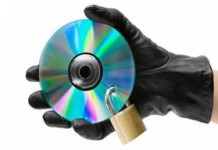
Ewan Morrison has a long, and fascinating, article in The Guardian with the above title. I would put it on the recommended reading list:
All of this ebook talk is becoming a business in itself. Money is being made out of thin air in this strange new speculative meta-practice: there are seminars, conferences and courses springing up everywhere, even at the Society of Authors (a writers’ union which, until recently, was largely against epublication). Television and radio programmes are being made about self-epublishing (I’ve personally been asked to speak about it on 12 occasions since August). Everyone can be a writer now: it only takes 10 minutes to upload your own ebook, and according to the New York Times “81% of people feel they have a book in them … And should write it”
But all of this gives me an alarming sense of deja vu. There’s another name for what happens when people start to make money out of speculation and hype: it’s called a bubble. Like the dotcom bubble, the commercial real estate bubble, the subprime mortgage bubble, the credit bubble and the derivative trading bubble before it, the DIY epublishing bubble is inflating around us. Each of those other bubbles also saw, in their earliest stages, a great deal of fuss made over a “new” phenomenon, which was then over-hyped and over-leveraged. But speculation, as we’ve learned at our peril, is a very dangerous foundation for any business. And when the epub bubble bursts, as all previous bubbles have done, the fall-out for publishing and writing may be even harder to repair than it is proving to be in the fields of mortgages, derivatives and personal debt. Because this bubble is based on cultural, not purely economic, grounds.
How do we know if we’re in a bubble?
To answer that we have to turn to respected economist Hyman Minsky. Minsky (1919-1996) studied recurring instability in markets and developed the idea that there are seven stages in any economic bubble (the following terminology is adapted from his Financial Instability Hypothesis [PDF]):


































Certainly, the self-publishing explosion will probably draw to a close; but I think it will be as much for the fact that the number of people who always wanted to write a novel will have done so. Yes, some will be undoubtedly disappointed that they are not the next Tom Clancy or Stephen King, but others will just be happy that their novel is out there; whether it sells 100 copies or a million.
I think the crucial mistake Mr. Morrison makes is applying an economic theory far more broadly than it was ever meant to be applied. Ereaders and tablets are relatively cheap, but even still, I have a hard time believing an author would buy one just to make themselves more familiar with ebooks (You can do it quite adequately on your computer… and if you have a smart-phone, that as well). The main investment in writing is time. If an author is not willing to invest that in his story, then he probably should not be an author to begin with.
Also, lets remember, even today, the average publishing house receives thousands upon thousands of unsolicited manuscripts every year. And yes, many authors never get published and some discouraged and others keep trying. At least with self-publishing, they all can get their book their book out there for others to read, not just the gate keepers at a publisher looking for the next best seller.
There is a very common, but totally false belief that it’s easy to make money in ebook publishing. Most people make very little, and for quite a bit of work. From the look of the marketplace, however, everyone and his cousin is trying!
That sounds to me like a bubble.
The good news is that pretty soon all the folks who aren’t really good at writing, or at least committed to it, will figure out that it’s not working, and drift on to the next get rich quick scheme. And the folks who sell such things will be in the forefront of the drift.
When that happens, the ebook marketplace will look a lot less like a slush pile, and we will all be more able to find good books to buy without so much work.
The question I think is, how many are actually trying to make money, and how many simply want to have a book published?
I think the real distinction between this phenomena and a classic Bubble is that when a classic bubble bursts, the commodity in question looses quite a bit of value (i.e., tech stocks, housing, etc.). Self-published ebooks tend to be fairly cheap.
The way I see it, in the old model, maybe what, 1 in a 100 new authors ever had a book published, and of those that were published, maybe 1 in a 100 was truly successful. Now the only difference is that all of them can be published.. and some that a publisher might have rejected will probably be big successes.
Yes, the number of indie published books might decline somewhat, but total number released every year is probably going to remain higher than a lot of people think.
Personally I find this kind of ‘smug’ article to be just a variation of the series of “Death of …” articles that has plagued us for so long. Remember folks Mr Morrison is the man who wrote a tome in the Guardian claiming that “Books are dead” … ” ebooks and e-publishing will mean the end of “the writer” as a profession.”
Morrison has absolutely no clue if it is a ‘bubble’ or not. He talks about the dot com bubble as if the internet went away after that … which is quite amusing. I won’t get into his silly parallels with other financial ‘bubbles’ because the analogies are really just idiotic.
And what is a ‘bubble’ anyway ? Is it a new phenomenon that then disappears ? or one that peaks and then settles into a steady state ?
The ability to publish oneself without going through a Publishing House … is that going to disappear ? Do you really think so ? I certainly don’t. What justification does Mr Morrison have for that to occur ? What will constitute a ‘publishing house’ in the future ?
There is no doubt in my mind that there will be a peak happening in self publishing the next 5 years. People who have accumulated pieces of writing that they have written in the past will take advantage of this new freedom. But it is a complete fantasy to suggest that it will all end and people will go back to publishing through Publishing Houses.
And where does this all leave his prediction for the ‘End of the Book!!!” You really have to laugh. How do guys like this ever get publishing i so-called reputable newspapers ?
Some used to think that if Random House published something in (costly) paper, it must be decent and might be great. After all, why would they spend all of that money without a ghost of a chance of a proper return? The size of the publisher’s investment predicted the discrimination involved in publishing it.
So what does the poor reader do when that cost approaches zero?
Frank,
That seems to be somewhat faulty logic to me. After all, I think most would agree that in other sectors of the entertainment industry, there is hardly any correlation between the cost of production and quality of the product. Hollywood has produced more than a few hundred million dollar turkeys, and also some really good films at the same budget.